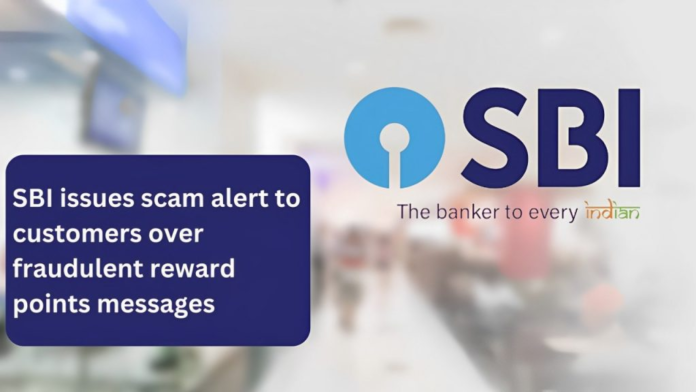SBI Reward Points Scam Alert: If you have a bank account in State Bank of India (SBI), then be alert because cyber criminals are sending fraud messages to SBI customers. The cyber crime wing of Tamil Nadu Police has received 73 complaints in the last two months regarding this.
Following these complaints, the police have also issued an advisory regarding the ‘SBI Reward Points Scam’.
In this advisory, the police has said that in this scam, scammers claim that people’s reward points have expired and send a fake message regarding this. A link is given in the message. You are asked to click on this link and download an APK file. Through this, scammers access your smartphone and steal personal and financial information.
Table of Contents
What are SBI Reward Points?
SBI provides a service called SBI Reward Points to its customers. When customers make any transaction using debit card or credit card, SBI gives some points to the customers. Customers can recharge, travel or shop through these points. These reward points also have an expiry date. If they are not used for 24 months i.e. 2 years, then they expire.
What is SBI Reward Points Scam?
In this scam, scammers first try to hack people’s smartphones. For this, they send fake messages about SBI reward points on the smartphone. This message comes with the ‘State Bank of India’ icon and name, which makes it look verified.
In recent incidents, hackers have used compromised WhatsApp accounts to send fake messages about ‘SBI Reward Points’ in various official and personal WhatsApp groups. These hackers could also change the existing group icon and name to ‘State Bank of India’.
Scammers send a link with the message to update bank details or redeem SBI reward points.
When a person clicks on the link they are asked to download an APK file (Android package).
By downloading and installing the APK file, a person unknowingly installs malware on his device. This malware can steal banking credentials i.e. customer name, password, smart card, token or biometric or other personal information.
How can I protect myself from SBI Reward Points Scam?
SBI had warned some time back to avoid SBI reward points scam. In this, SBI had said that ‘Customers should be careful about the messages related to reward points coming on their phones. Such messages are being sent to customers by scammers.’
Understand this in detail from the 3 points given below–
Increase security with two-step verification
To avoid SBI reward points scam, use two-step verification password on social media accounts. This process involves inputting a PIN in addition to the smartphone one-time password (OTP). This provides additional security to any smartphone user. Always create a strong password for banking related apps.
Make sure to check authenticity
To avoid any kind of scam, do not click on suspicious links. First check by going to the official source, website or application. Keep in mind that real links never ask to download any third party APK file. Virus or malware can reach your phone through APK file. This can hack the device and empty your bank account.
Report suspicious activity immediately
If you see any suspicious activity after clicking on a link, turn off the data. By doing this, if there is any activity happening in the backup, it will stop.
Along with this, immediately lodge a complaint on Cyber Crime toll-free helpline number 1930 or www.cybercrime.gov.in .
How to redeem SBI reward points?
1 reward point is equal to 25 paise. That means if a customer has 1000 reward points, he can make purchases worth up to Rs 250.
In the name of redeeming these reward points, cyber criminals trap people by sending fake links.
So instead of any other link, redeem your reward points like this
First of all go to https://rewardz.sbi/
After this click on the New User option.
Enter SBI Rewardz Customer ID.
After this, OTP will come on the registered mobile number for verification.
After entering OTP, verify your personal details.
Once the details are verified, you can redeem the reward points.
Keep in mind that to download any app, use authentic platforms like Google Play Store or Apple App Store. Before installing the app, definitely check its reviews and ratings.

